How to Use AI for SEO: Smart Strategies to Boost Rankings

Search Engine Optimization (SEO) has always been an evolving discipline. What once relied heavily on manual keyword research, guesswork, and human-driven content creation has now shifted into a new era—one powered by artificial intelligence. Today, businesses that want to outperform competitors must embrace AI for SEO, as it enables deeper insights, faster execution, smarter decision-making, and greater potential for higher rankings.
AI is not replacing SEO professionals—it is empowering them. By adopting AI-driven SEO strategies, marketers can analyze search intent more accurately, generate high-performing content, optimize webpages efficiently, and stay ahead of algorithmic changes across search engines.
In this comprehensive blog, we will explore how AI is transforming SEO, what tools to use, how to start optimizing content with AI, and the best practices every business owner or marketer should follow to gain a competitive edge.
Why AI Matters More Than Ever in SEO
Search engine...
AI-Driven SEO: Unlocking Data-Backed Strategies for Higher Conversions
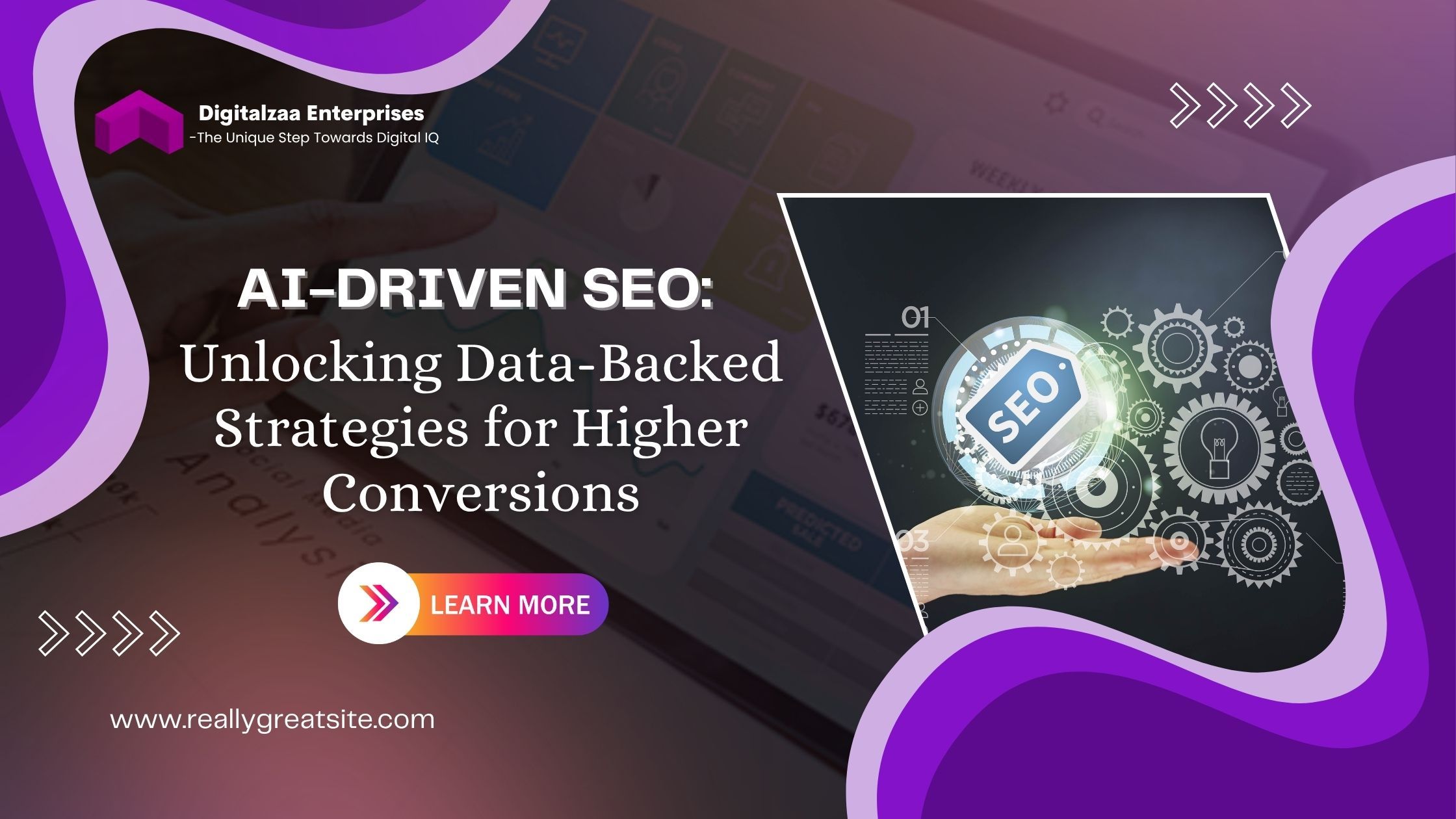
In today's hyper-competitive digital landscape, businesses can no longer rely on traditional SEO tactics alone. The game has changed, and artificial intelligence is rewriting the rulebook. AI-Driven SEO represents the convergence of machine learning, predictive analytics, and search optimization creating unprecedented opportunities for businesses to dominate search rankings and drive meaningful conversions.
If you're still manually researching keywords and guessing what content will resonate with your audience, you're already falling behind. The future of search optimization is here, and it's powered by intelligent algorithms that can analyze millions of data points in seconds, predict user behavior with stunning accuracy, and deliver strategies that actually move the needle on your bottom line.
What Is AI-Driven SEO and Why Does It Matter?
AI-Driven SEO leverages artificial intelligence and machine learning technologies to enhance every aspect of search engine optimization. Unlike ...
10 Ways AI-Driven SEO Boosts Rankings and Organic Traffic
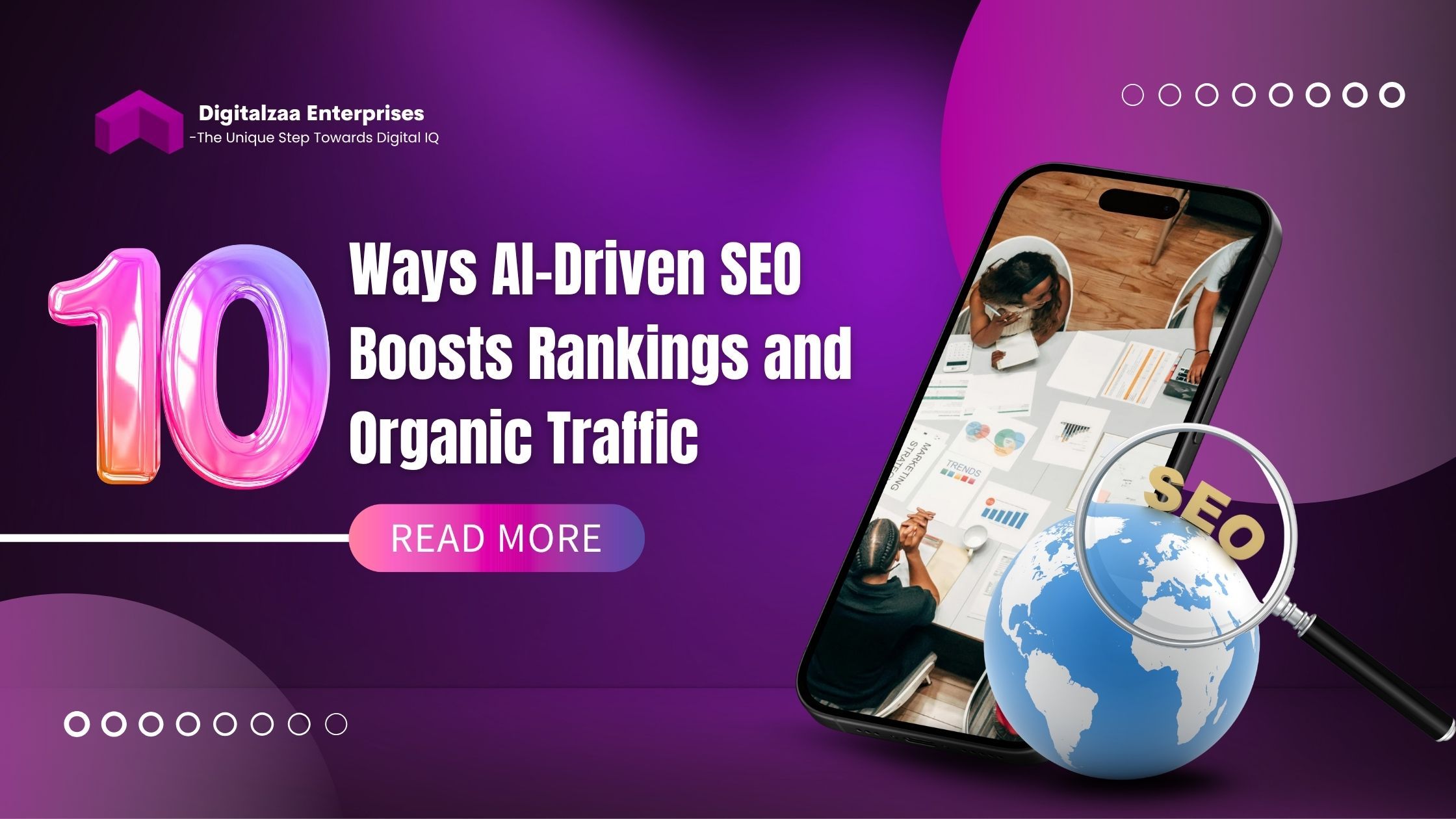
In the fast-changing digital marketing world, AI-Driven SEO has emerged as one of the most powerful strategies for businesses looking to grow online. Artificial Intelligence isn’t just transforming how we search, it’s reshaping how we optimize for search engines, attract quality visitors, and scale visibility faster than ever before.
If you’re serious about achieving Organic Traffic Growth, AI can be your biggest game-changer. In this guide, we’ll break down 10 practical ways AI-Driven SEO can skyrocket your rankings and bring in more organic leads without relying solely on paid ads.
1. Smarter Keyword Research with AI
Traditional keyword research often takes hours of manual work. AI makes it faster and more accurate.
- AI-powered tools analyze massive search datasets in seconds.
- Identify high-intent, low-competition keywords easily
- Understand keyword search intent better whether users want information, a product, or a solution.
- Predict future keyword trends so you can stay ahe...
Why AI-Driven SEO is the Game-Changer Every Marketer Needs in 2025
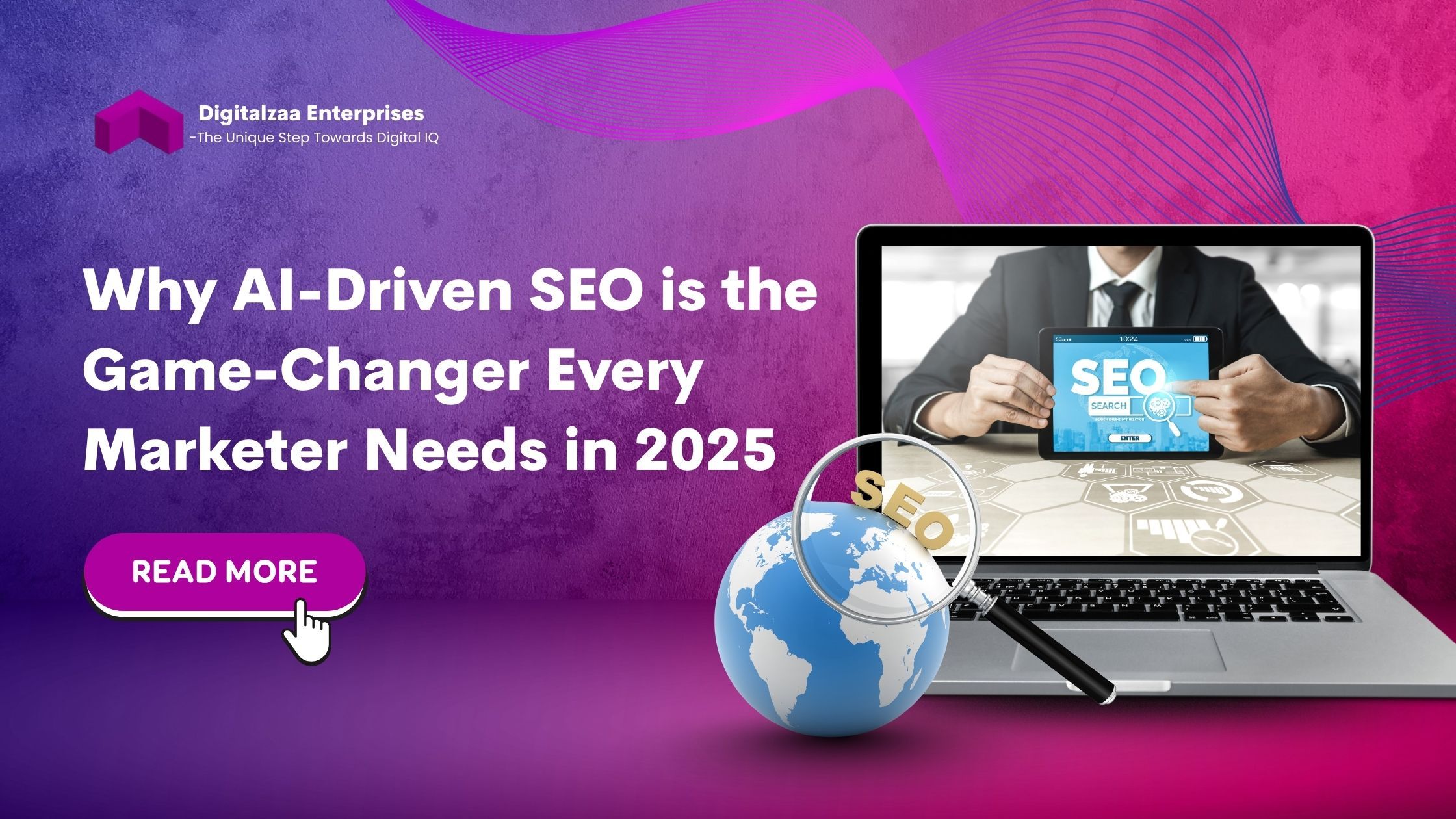
In today’s fast-changing digital ecosystem, businesses cannot afford to rely on outdated strategies to rank higher on search engines. As we enter 2025, AI-driven SEO is no longer just a buzzword—it has become the most powerful tool for marketers aiming to dominate online visibility, drive organic traffic, and maximize ROI. Traditional search engine optimization was once about keyword stuffing, backlinking, and content quantity. However, with the evolution of artificial intelligence, the focus has shifted to AI-powered SEO strategies that deliver precision, personalization, and performance.
This blog explores why AI-driven SEO is a game-changer in 2025, its benefits, key applications, tools, and the future it promises for digital marketing.
What is AI-Driven SEO?
AI-driven SEO refers to the integration of artificial intelligence algorithms and tools into search engine optimization practices. Unlike traditional SEO that depends heavily on manual research and guesswork, AI uses machine...
How Artificial Intelligence is Redefining SEO Strategies?
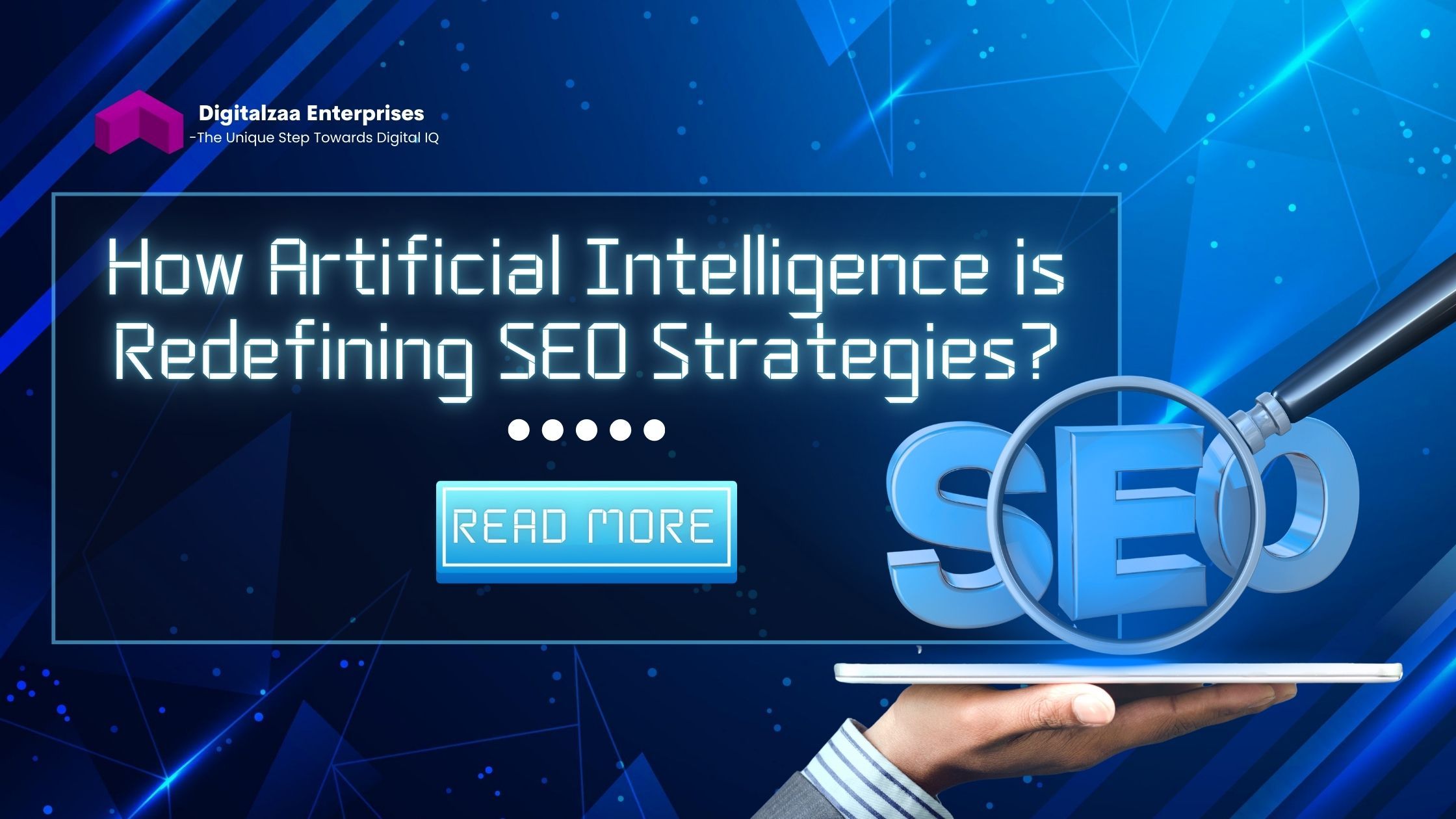
Search Engine Optimization (SEO) has always been the backbone of digital marketing. From keyword stuffing in the early 2000s to today’s sophisticated content marketing, SEO has constantly evolved. Now, Artificial Intelligence (AI) is redefining the entire landscape of SEO strategies. With search engines like Google leveraging AI-driven algorithms such as RankBrain, BERT, and MUM, the way businesses optimize their content for visibility has changed dramatically.
In this blog, we will explore how Artificial Intelligence in SEO is transforming digital marketing, why it matters for businesses, and how marketers can adapt to AI-powered tools and techniques for long-term success.
The Evolution of SEO and AI’s Role
Traditional SEO relied heavily on manual keyword research, backlinks, and technical optimization. While these elements remain relevant, search engines are now smarter than ever, focusing on user intent, content quality, and contextual meaning.
AI technologies such as machine l...
Analyzing Algorithms: How AI Enhances Technical SEO.
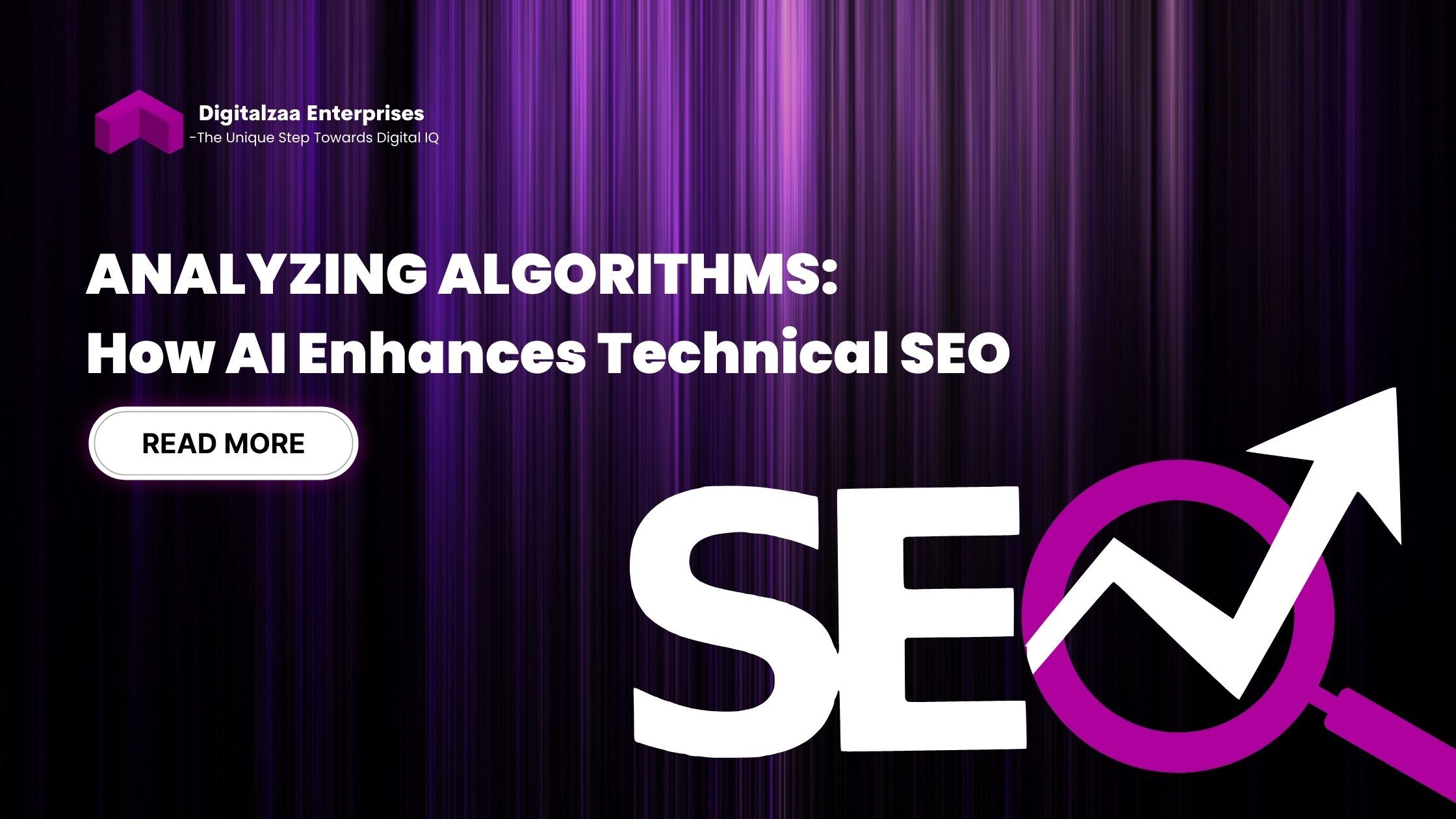
Search engine optimization (SEO) has always revolved around one essential principle—understanding how search engines process, evaluate, and rank content. At the heart of this lies algorithms, which dictate what appears on the first page of search results and what gets buried beneath countless competitors. Over the years, these algorithms have become increasingly sophisticated, moving far beyond simple keyword matching to include natural language processing, contextual understanding, and behavioral analysis.
In this constantly evolving environment, technical SEO plays a crucial role. Unlike on-page or off-page SEO, technical SEO focuses on the behind-the-scenes elements—site architecture, indexing, crawlability, page speed, structured data, and overall website performance. As search engines evolve, the complexity of optimizing these factors also increases. This is where artificial intelligence (AI) is making a transformative impact.
AI not only helps us understand search engine algori...
How AI is Revolutionizing SEO: Smarter Strategies for Better Rankings in Search Engines.
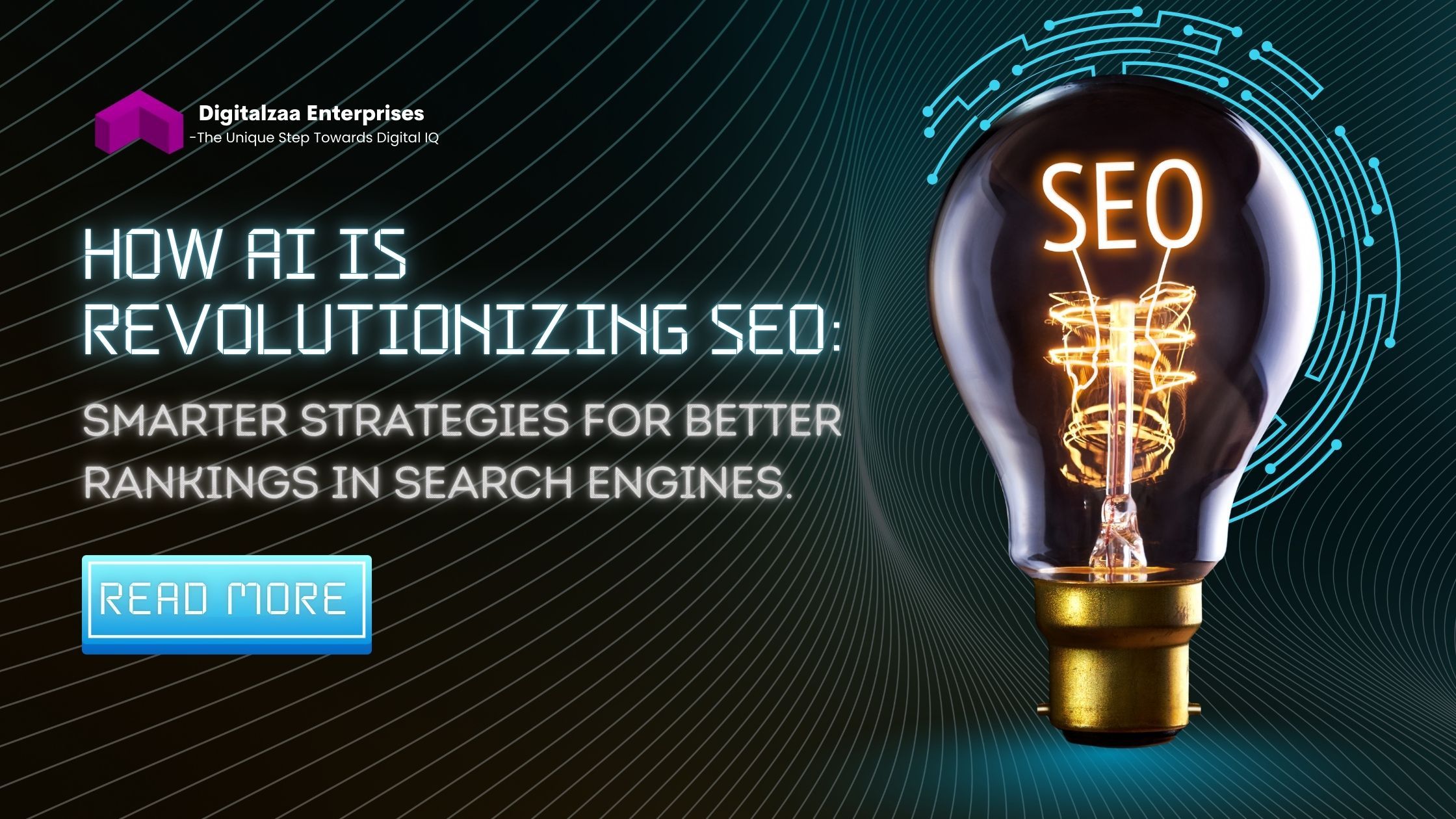
Search engine optimization used to be a mix of art and repetitive grunt work: find keywords, write pages, stuff meta tags, earn links, rinse, repeat. Today, artificial intelligence is changing that workflow at every step. From faster keyword discovery to content that’s optimized for how modern search engines and AI assistants actually answer questions, AI is rewriting the playbook. In this post, I’ll explain what’s changed, how AI tools work in the SEO stack, practical ways to apply them, and — importantly — the guardrails you must follow to keep rankings and credibility intact.
What “AI for SEO” really means

When people say “AI for SEO,” they usually mean systems that use machine learning and natural language processing to analyze search data, predict user intent, and either automate or assist with decisions that were formerly manual. Those systems include:
- LLMs (large language models) that summarize content, draft text, and suggest headings.
- Machine-learning SEO platforms tha...
Why AI Is Redefining the Future of SEO and Search Engines.

The digital landscape is evolving faster than ever, and at the heart of this transformation lies artificial intelligence (AI). When it comes to the future of SEO and search engines, AI is not just a supporting technology; it's a revolutionary force reshaping how websites rank, how content is discovered, and how users experience search. In this blog, we’ll explore why AI is redefining the future of SEO and search engines, the implications for marketers, and how businesses can adapt their SEO strategy evolution to thrive in this new era.
The Future of SEO: From Keywords to Intelligent Context
To understand the future of SEO, we must look back at how search engines have evolved and where they’re heading. In the early days of SEO, the focus was on matching specific keywords. If your page mentioned “best running shoes” multiple times, chances were good you'd rank high for that term. But that era is long gone. Modern search engines like Google, Bing, and others now use AI to understand sea...
AI-Driven SEO: How Artificial Intelligence Is Reshaping Search Marketing.
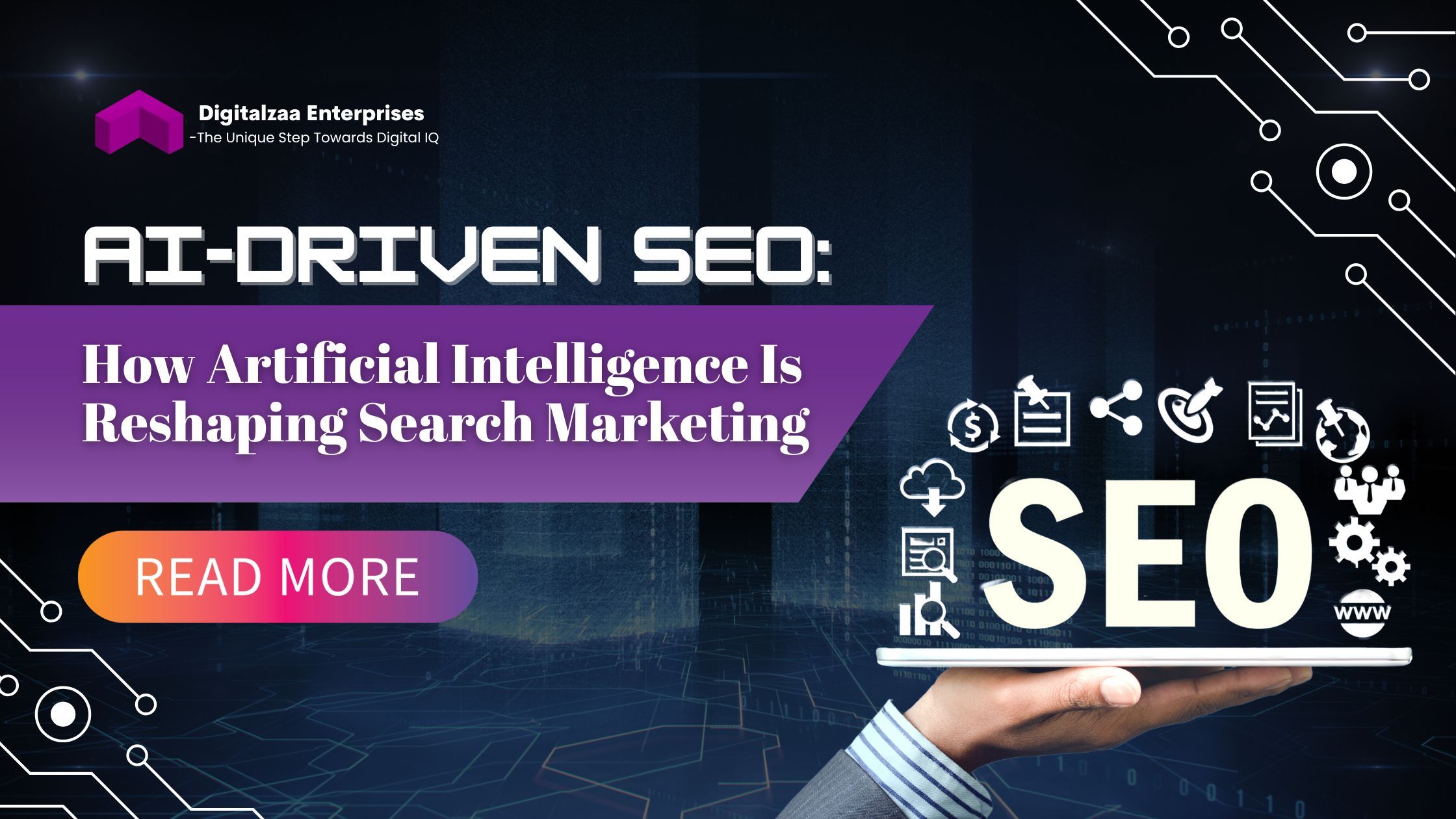
Search Engine Optimization (SEO) has evolved dramatically over the past two decades. What once revolved around stuffing keywords and building simple backlinks has become a complex, data-driven discipline. The game changer? Artificial Intelligence (AI). Today, AI isn't just an add-on to SEO—it’s the engine behind the most effective strategies in modern search marketing.
AI-driven SEO is revolutionizing how marketers conduct keyword research, create content, optimize websites, and engage with users. This blog explores how AI is reshaping search marketing, highlighting key innovations, benefits, and what the future holds. Major search engines like Google have steadily adopted AI to enhance how they interpret content and understand user intent. Over time, the algorithms have shifted from keyword-matching to context and semantics.
Key Artificial Intelligence Milestones in Search Algorithms:
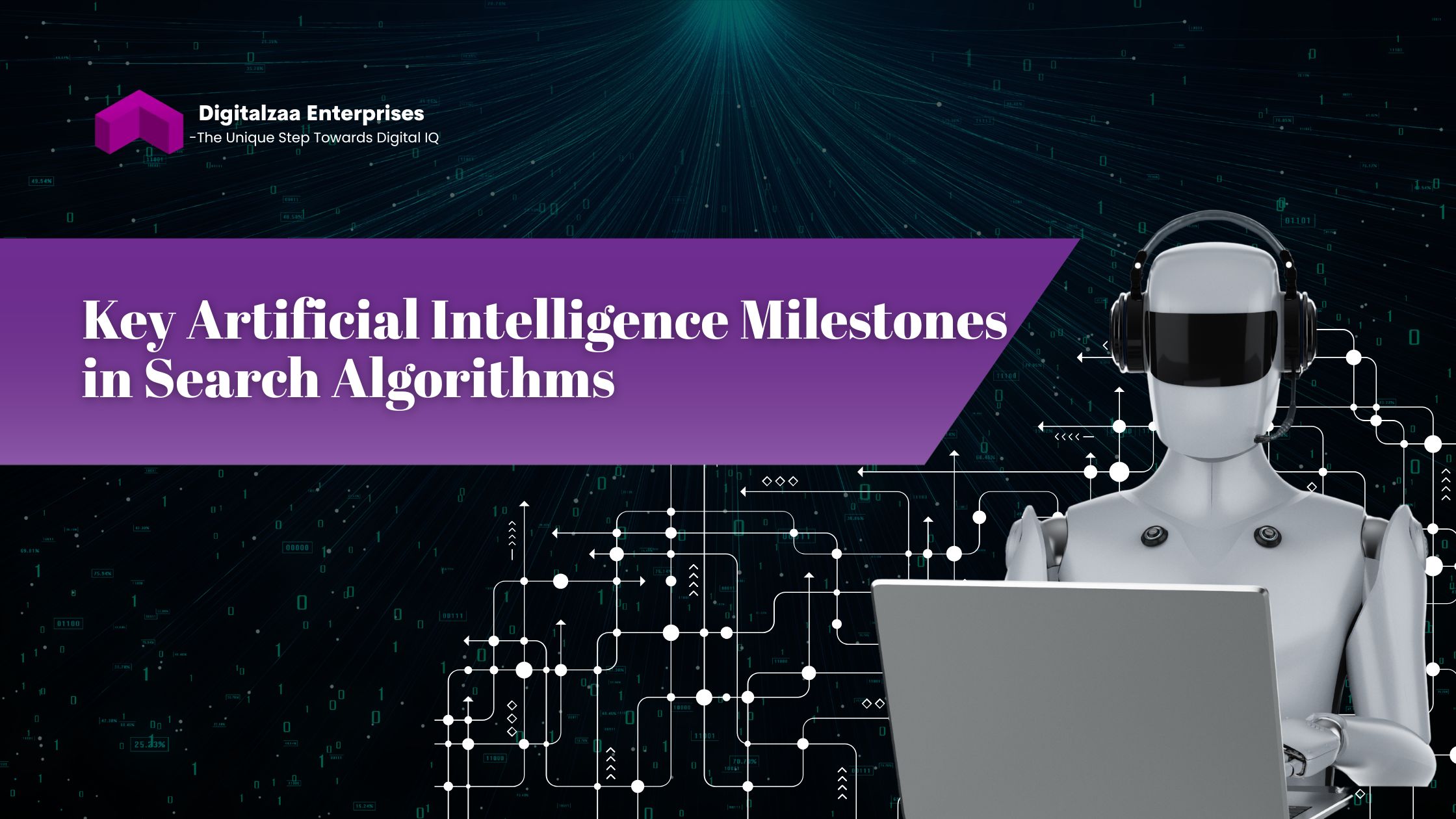
- Machine Learning Models: Search engines now use machine learning to analyze user behavior and ...
AI-Driven SEO Audits: Uncover Hidden Opportunities in Minutes.

In today’s hyper-competitive digital landscape, every second counts—especially when it comes to search engine optimization (SEO). Businesses striving for online visibility need more than just traditional SEO practices. They need speed, precision, and strategic insights that can make or break a campaign. This is where AI-driven SEO audits step in—revolutionizing how we uncover hidden opportunities that manual audits often miss.
Imagine getting a comprehensive SEO audit in just minutes, highlighting broken links, keyword gaps, duplicate content, and competitor benchmarks—all without sifting through endless spreadsheets or manually crawling pages. That’s the power of artificial intelligence (AI) in SEO audits.
What is an AI-Driven SEO Audit?
An AI-driven SEO audit uses machine learning algorithms and natural language processing (NLP) to analyze a website’s technical structure, content quality, backlink profile, user experience, and competitor landscape. Unlike manual audits, which can ...


